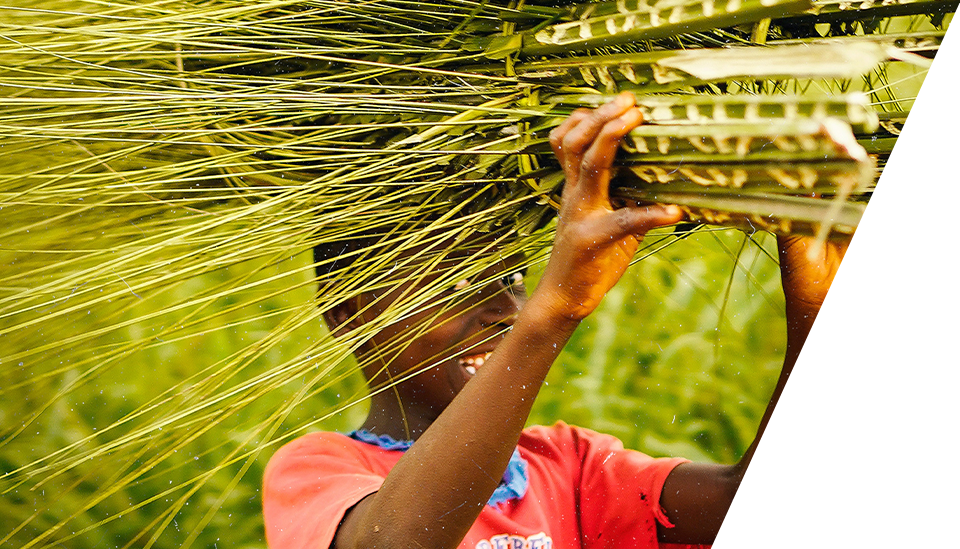Q&A: Calls for greater investment of ODA into livestock sectors

The livestock sector plays a significant role in development, but Dr. Jimmy Smith, director general of the International Livestock Research Institute, says this is not reflected in official development assistance — which contributes less than 0.25 percent to livestock.
Smith visited Australia between April 3 and April 7, as the last leg of a global trip that included stops in the United Kingdom and United States. In each country, he pushed for greater ODA toward livestock sectors in the developing world.
During his stay, Smith discussed his thoughts with Devex. This interview has been edited for length and clarity.
Your visit to Australia is timely — we have just had the preliminary release of 2016 ODA figures from the Organisation for Economic Co-operation and Development showing Australian contribution has declined. How do you frame discussions on ODA with donor countries when they are reducing contributions?
“ODA is not entirely gifts to the developing world — there is an enlightened sense of self-interest to the support.”
Dr. Jimmy Smith, director general of the International Livestock Research Institute
I was in Canberra this week, where I met with the Australian Centre for International Agricultural Research and the Department of Foreign Affairs and Trade, largely to discuss development assistance for the livestock sector in the developing world.
It’s a difficult conversation. There are multiple needs of countries providing ODA, including Australia, and many of them are dealing with issues such as refugees or security and all of these costs are borne by Treasury. What is left may not be a great deal to spend overseas.
We are also discussing the proposed aid cuts by the U.S. and their potential impacts.
In the end, we are hopeful that the merit of the investment will gain ground. The point we make is that development overseas has long term benefits for Australia, the U.S. and other donor countries as well. First, investment in developing countries and livestock agriculture creates markets for donors to sell more of their products to — animal food, agricultural products, drugs and vaccines for example. And by helping to control diseases overseas, you reduce health, economic and social challenges to Australia.
ODA is not entirely gifts to the developing world — there is an enlightened sense of self-interest to the support.
In my public engagements, I’ve been discussing the importance of livestock to food security and nutrition in the developing world. But it is also very important in how these economies evolve, develop and help people escape poverty. I’m making the case for more development assistance to help.
Approximately 40 percent of agricultural GDP in developing countries is livestock, but ODA tends to focus in grain and plant-based agriculture. How should development assistance shift to place greater value on livestock?
We characterize this as a bit of a missed opportunity at the moment because the sector is so important and is going to grow over time. It currently employs much of the poor as smallholder farmers and over time this will be an important area to target, to both reduce poverty in developing countries, as well as provide more of the animal food sources we will need over time.
“We don’t just make the case that ODA alone needs to be directed towards the livestock sector — developing countries themselves should spend more in this area.”
Dr. Jimmy Smith, director general of the International Livestock Research Institute
When we look to trade livestock across borders or as livestock becomes more important in people’s food baskets, we need a better quality and safer product, and there is need for much more investment in this area.
But we don’t just make the case that ODA alone needs to be directed towards the livestock sector — developing countries themselves should spend more in this area.
Both developing country governments as well as those helping developing countries should spend more on this sector because of the benefits to food and nutritional security, but also the global goal of reducing poverty.
In engaging with donor countries, do they have any different areas of priority for investment in the livestock sector in developing countries?
Some countries are more concerned with environmental issues, while others are focused on health. But the agenda is largely the same. Where the differences are is the regional focus. Many donors have particular partnerships in their region that they wish to support more than others.
For us, as a global organization with a global focus, we still give higher priority to Southeast Asia and African countries — we do less in Latin America and the Caribbean. We work on markets, trade, health, feeding, nutrition and issues of gender, youth and fair trade.
Brexit and the Trump administration have created uncertainty on global trade. How has that impacted work the ILRI is doing on access to markets and trade opportunities for developing countries?
It has not impacted our work yet, but of course we are concerned that there is perhaps a tendency to look more inwards, at the risk of the development agenda.
Just a few years ago, we were looking at a multilateral agenda for trade, and now it is reverting to bilateral, which certainly has implications for trade. We don’t know, yet, the extent to which this change will be carried out, and the short- and long-term impacts. For us, it is still a matter of wait and see.
In the livestock sector, what are the challenges for developing countries your programs and research aiming to overcome?
Right at this moment there is a drought, hopefully ending, in Africa. We are helping governments there with emergency assistance, or are working on areas where we can provide insurance, for example for livestock in that dryland that can suffer from drought. Some of our research in this area links quite directly with these programs. We’re not a relief agency but we do provide relief assistance through our research, which indirectly helps organizations providing relief services.
Environmental issues of livestock is also important for our research to address, and it goes two ways — animals have an impact on the environment, but there is also the environmental impact on livestock, which is equally as important. The changes of rainfall can impact feed and water access.
And there are also factors we do not yet fully understand.
If there are going to be changes in temperature over broad geographic areas, what are the implication for diseases, pathogens and so on? These are issues we are studying but do not have all of the answers to.
Funding and support in this area helps to answer these questions.
Has your visit to Australia established collaborative projects? And how will your visits to donors impact the direction of ILRI for the coming year?
“Engagements with the private sector too, including multinational private sector organizations, need to develop, as these engagements are not as deep and wide as we would like.”
Dr. Jimmy Smith, director general of the International Livestock Research Institute
At ACIAR, we had good discussions on where we might focus our work, with a focus on Southeast Asia. And at the University of Melbourne we have had positive discussions on work we are both conducting with active agendas, which we are going to continue perusing over the next several months.
Animal health issues, improving genetic resources, improving markets and environmental research is at the top of these agendas. In the case of Southeast Asia we will be focusing on Myanmar and Vietnam in particular.
Over the next year, we are going to continue engaging our development partners on what we should be doing, how we should be doing it and improving our research effectiveness to support partners and donors. Engagements with the private sector too, including multinational private sector organizations, need to develop, as these engagements are not as deep and wide as we would like.
And we hope that discussions we have had here in Australia and elsewhere will lead to improved scientific collaborations, investment and value of the livestock sector in developing countries and development assistance.
This article originally appeared on https://www.devex.com/news/q-a-calls-for-greater-investment-of-oda-into-livestock-sectors-90069
Read more international development news online, and subscribe to The Development Newswire to receive the latest from the world’s leading donors and decision-makers — emailed to you free every business day.

